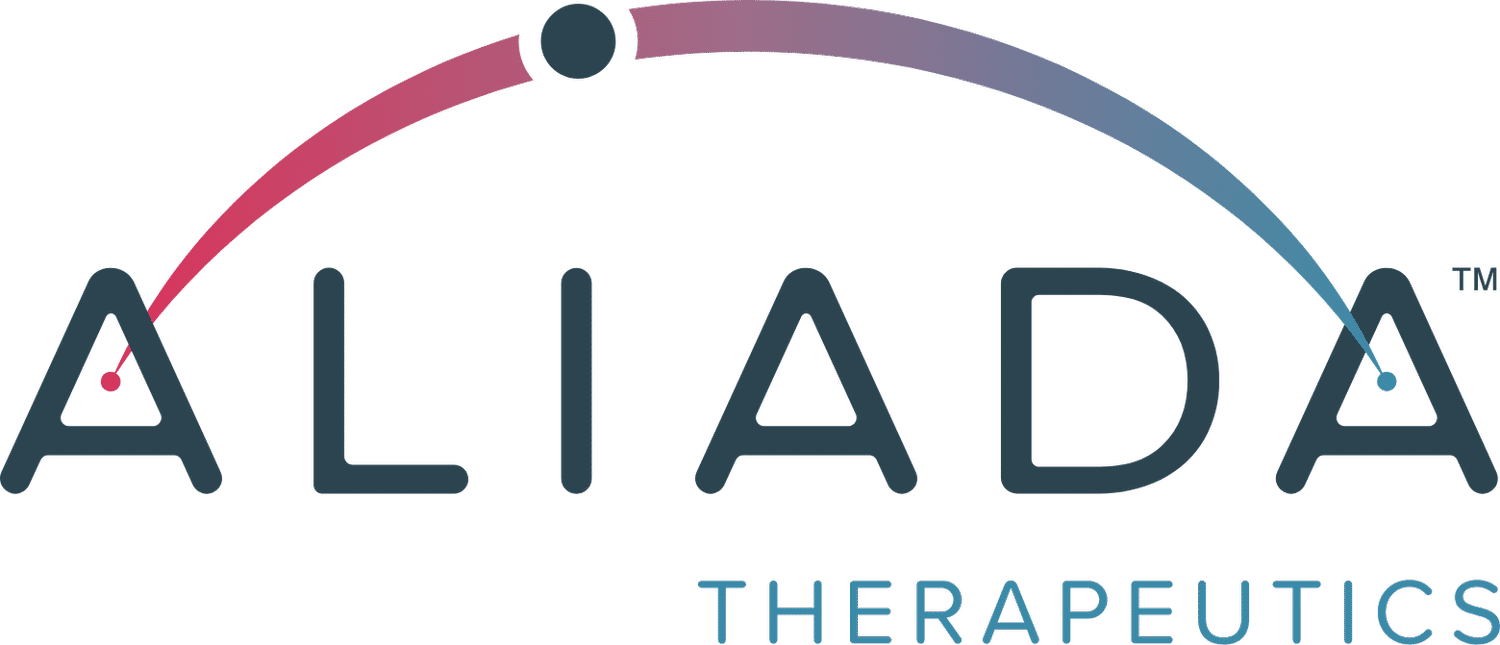预约演示
更新于:2025-09-04
ALIA-1758
更新于:2025-09-04
概要
基本信息
在研机构 |
非在研机构- |
最高研发阶段临床1期 |
首次获批日期- |
最高研发阶段(中国)- |
特殊审评- |
登录后查看时间轴
关联
1
项与 ALIA-1758 相关的临床试验NCT06406348
A Randomized, Double-Blind, Placebo-Controlled, Phase 1, Single Ascending Dose Trial to Assess the Safety, Tolerability and Pharmacokinetic Effects of ALIA-1758 in Healthy Participants
This is a Phase 1, first in human (FIH), double-blind, placebo-controlled, single ascending dose (SAD) trial to assess the safety, tolerability, and pharmacokinetics (PK) of intravenously (IV) or subcutaneously (SC) injected ALIA-1758 in healthy male and female participants.
开始日期2024-05-09 |
申办/合作机构 |
100 项与 ALIA-1758 相关的临床结果
登录后查看更多信息
100 项与 ALIA-1758 相关的转化医学
登录后查看更多信息
100 项与 ALIA-1758 相关的专利(医药)
登录后查看更多信息
44
项与 ALIA-1758 相关的新闻(医药)2025-08-02
·药时代
全文共1900字,共2图预计阅读时间:7分钟新官上任三把火!2025年7月31日,在艾伯维第二季度财报电话会议上,现任总裁兼首席执行官(CEO)Robert A. Michael放出豪言:“我们期待明年成为业内最大的神经科学(CNS)公司!”颇为有趣的是,Robert A. Michael 从今年7月1日起才接替Richard A. Gonzalez出任艾伯维CEO并加入董事会。随即,他就提出了艾伯维“掉转船头”向CNS一哥冲击的目标,颇有股“新官上任三把火”的劲。那么,艾伯维如今敢于争夺CNS头把交椅的底气究竟来自哪里?CNS领域百花齐放,增速喜人先来看看艾伯维CNS新交的成绩单。7月31日,艾伯维公布了2025H1业绩,上半年总营收287.66亿美元,同比增长7.4%。其中神经科学业务高达49.65亿美元,同比增长20.3%。奇怪的是,艾伯维将医美重磅产品Botox(保妥适)也纳入了中神经科学业务的统计中。在神经科学领域,精神分裂症药物Vraylar(卡利拉嗪)上半年销售额达到16.65亿美元,延续了其2024年销售额位列CNS领域TOP3的极佳表现。这主要归功于Vraylar在精神分裂症、双相障碍I型抑郁和重度抑郁三大适应症的获批。在偏头痛治疗领域,Ubrelvy和Qulipta表现出色,分别实现销售额5.78亿美元和4.60亿美元。Qulipta的销售额激增63.6%,或得益于去年4月公布的积极3期试验数据,显示70%的受试者偏头痛天数显著减少。未来销售额超过Ubrelvy指日可待。在帕金森病治疗领域,Duodopa和Vyalev展示了相反的销售趋势。上市超20年的Duodopa销售额为1.93亿美元、下降15.2%;而2024年获批上市的Vyalev销售额达1.61亿美元,目前正快速放量,是艾伯维2025年H1增长率(超过100%)最高的药物。Duodopa需通过手术置入胃管给药,日常维护复杂;相比之下,Vyalev采用皮下24小时持续输注疗法,使用泵进行给药,提高了便利性,并避免了因口服疗法半衰期短而导致的并发症,成为了艾伯维在帕金森领域的新王牌。不过,大家提起艾伯维总是想到其在自免领域的王者风范。数据就是最强的证明。2025H1艾伯维仅凭3款自免产品就拿下了138.95亿美元。其中,IL-23单抗Skyrizi(利生奇珠单抗)和JAK1抑制剂Rinvoq(乌帕替尼)增长迅猛,销售额分别达78.48亿美元(+65.8%)和37.46亿美元(+48.5%),双双超越昔日“药王”Humira,合计贡献115.94亿美元。按此高速增长势头,自免双子星Skyrizi与Rinvoq全年总收入有望轻松突破250亿美元。然而,从整体业务增速看,艾伯维的CNS板块上半年同比增长达20.3%,显著高于自免领域的12.6%,正在成为公司增长的新引擎,符合新任CEO Robert Michael对艾伯维的愿景。从哪赚钱往哪花CNS领域的巨大回报赋予了艾伯维强大的“钞能力”,使其能够持续将资金投入该领域的扩张,形成商业回报与研发成果相互促进的良性循环。从一系列对外合作与并购(BD)动作来看,艾伯维展现出明确而坚定的战略野心——全力冲刺“CNS领域第一”的目标。据知情人士透露,艾伯维正在谈判收购私营心理健康治疗公司Gilgamesh Pharmaceuticals,交易价值约10亿美元。自2024年5月起,艾伯维已与Gilgamesh达成一项20亿美元的合作协议,旨在开发新型神经可塑因子药物,用于治疗情绪障碍和焦虑症等精神疾病,同时避免幻觉副作用且无需诊所内管理和支持性护理。如果此次收购成功,这将是艾伯维不到2年内收购的第3家中枢神经系统公司。去年10月,艾伯维就斥资14亿美元现金收购了Aliada Therapeutics及其在阿尔茨海默病领域的项目(抗体ALIA-1758),这也标志着艾伯维走出了AD合作屡次折翼的阴霾,重整旗鼓。然而,艾伯维的另一起收购颇具争议。在2023年末,艾伯维以87亿美元收购Cerevel Therapeutics。但其核心产品EMPOWER在两项针对精神分裂症患者的II期临床试验(EMPOWER-1和EMPOWER-2)中未能达到主要终点,让艾伯维一夜蒸发300亿美元。好在仅一个月过去,艾伯维宣布Cerevel的另一核心管线帕金森药Tavapadon在关键3期TEMPO-2试验中获阳,算是为公司挽回了些许“颜面”。艾伯维有望于2025年向美国FDA提交Tavapadon的新药上市申请,CNS领域又将迎来新星。艾伯维能登顶“CNS一哥”吗?CNS领域销售额的快速增长和战略扩张能让艾伯维登顶CNS一哥的位置吗?目前仍难以定论。作为CNS领域的资深玩家,强生在年初以146亿美元收购Intra-Cellular,获得了包括已上市药物Caplyta(卢美哌隆)在内的多项资产。Caplyta在2024年的销售额达到了6.8亿美元。强生此举有效规避了早期研发失败的风险,还加速了商业化价值的实现。AD领头羊渤健紧随其后,与RNAi技术公司City Therapeutics达成近10亿美金协议,将RNAi工程技术与组织增强型递送技术结合,开发系统性给药的RNAi疗法,并优先应用于CNS疾病。渤健旗下的Leqembi产品也有望在今年8月获批,它将成为首款可通过自动注射器在家进行皮下注射的阿尔茨海默病治疗药物,市场前景无限。展望未来,随着各公司在CNS领域不断加大研发投入和技术革新,行业内的激烈竞争将推动整个领域向着更加高效、便捷的治疗方案发展。无论是艾伯维的迅速崛起,还是强生和渤健等老牌企业的持续创新,都将为患者带来更多希望和可能。生物药领域没有永恒的一哥,只有无限的可能。参考资料:1.https://www.biospace.com/business/abbvie-pats-own-back-as-skyrizi-and-rinvoq-rake-in-billions2.https://xueqiu.com/1903401042/2960875273.https://finance.sina.com.cn/stock/hkstock/ggscyd/2025-07-31/doc-infiiimz3086863.shtml4.700亿美元并购风暴,制药巨头狂砸CNS赛道的背后(医药魔方)5.百亿精分药赛道「再起风云」(药研网)6.三期临床获阳!艾伯维能否“一雪前耻”?(公众号:药时代)图片来源:即梦AI必看!2025年阿尔茨海默病协会国际会议重磅盘点2025-07-31市值蒸发超600亿美元,诺和诺德如何度过“至暗时刻”?2025-07-30突发!CBER主任Vinay Prasad上任不足三个月离职2025-07-30版权声明/免责声明本文为原创文章。本文仅作信息交流之目的,不提供任何商用、医用、投资用建议。文中图片、视频、字体、音乐等素材或为药时代购买的授权正版作品,或来自微信公共图片库,或取自公司官网/网络,部分素材根据CC0协议使用,版权归拥有者,药时代尽力注明来源。如有任何问题,请与我们联系。衷心感谢!药时代官方网站:www.drugtimes.cn联系方式:电话:13651980212微信:27674131邮箱:contact@drugtimes.cn点击这里,查看更多精彩!
财报高管变更
2025-06-30
iStock,
mayrum
The rise of monoclonal antibodies brought back hope for stalling or reversing the devastating neurodegenerative disease. Big Pharma has taken notice with a handful of high-value deals, GlobalData reports.
After Biogen and Eisai achieved approval for the monoclonal antibody Leqembi in Alzheimer’s in January 2023, analysts predicted a rise in investment for biotechs tackling the neurodegenerative disease. According to a new report from Global Data, that’s exactly what happened.
Total M&A deal value in Alzheimer’s has jumped 780% from just $2 billion in 2022 to $18 billion in 2024, according to the analysis firm.
“Large pharmaceutical companies, such as AbbVie and Sanofi, are placing their bets on Alzheimer’s disease through high value acquisitions,” Alison Labya, business fundamentals pharma analyst at GlobalData, wrote in the firm’s report.
The
rise of monoclonal antibodies
revived hope for actually treating the disease. Prior to the approval of Leqembi—and then Eli Lilly’s Kisunla in July 2024—patients’ only option was Eisai and Pfizer’s Aricept, which managed symptoms only. The two anti-amyloid antibodies are considered the first disease-modifying treatments for Alzheimer’s.
But the companies have struggled to gain a market foothold. Leqembi reportedly had sales of $22.8 million in May, which represents an
upward trend
, according to a report from Jefferies earlier this month. Eisai and Biogen have had to
lower expectations for future sales
dramatically. Lilly, which has run into
regulatory challenges
, collected $11 million in sales for Kisunla in May.
Nevertheless, the approvals renewed biopharma’s interest in finding new options, according to Labya. Investment priorities have shifted to improving efficacy and safety and finding new targets beyond amyloid-beta, she added.
Key deals include AbbVie’s $1.4 billion acquisition of Aliada Therapeutics in December 2024. The biotech brought its Phase I anti-pyroglutamate amyloid beta therapy, ALIA-1758, to AbbVie, which Labya says is differentiated from the approved options thanks to a novel delivery technology that is designed to cross the blood-brain barrier.
For 2025, deal value had already hit $16.8 billion as of May, thanks mostly to Johnson & Johnson’s
$14.6 billion buyout of Intra-Cellular Therapies
. While the star of that deal was the schizophrenia drug Caplyta, the company also came with a Phase II oral small molecule called ITI-1284 under development for agitation and psychosis associated with Alzheimer’s.
Sanofi also added to the tally with the $470 million
acquisition of Vigil Neuroscience
in May, reinvigorating the TREM2 pipeline after some
previous clinical stumbles
.
All of these new approaches could someday find their way into a
combination treatment approach
with Lilly and Eisai/Biogen’s options, according to Labya.
“The future Alzheimer’s disease treatment paradigm is anticipated to be combinatorial, where novel drugs targeting alternative disease mechanisms, other than amyloid-beta plaques, must demonstrate additive efficacy alongside Leqembi and Kisunla, as well as improved safety, to achieve market success,” she said.
Meanwhile, pharmas have also been signing licensing deals to discover new targets for Alzheimer’s. In December 2024, GSK paid $25 million upfront and offered up to $147.6 million per target later on to access Muna Therapeutics’ MiND-MAP platform to
find new Alzheimer’s drugs
.
New biotechs have also emerged to tackle the problem. One example is Atalanta, which raised a
$97 million series B
in January.
上市批准并购引进/卖出临床2期临床1期
2025-05-28
·同写意
同写意年度巨献!!大会特设“CNS新药开发”分会,7月25-26日,邀您相聚金鸡湖畔,与5000人一起为中国医药创新“同写意”!渤健正式涉足RNAi领域。5月27日,渤健与成立仅7个月的RNAi技术公司City Therapeutics达成协议,共同开发新型中枢神经系统疗法。这家公司由数名前Alnylam高管创立,将运用其RNAi工程能力,与渤健共同开发新型中枢神经系统疗法。根据协议,City将获得1600万美元预付款和3000万美元的投资,并有资格获得高达10亿美元的里程碑付款以及销售分成。此次合作发生在强生、艾伯维披露在CNS研发中的失败消息,辉瑞、安进、默沙东等药企相继缩减CNS投入,以及阿斯利康表示不再碰CNS的背景下。这是渤健寻求“外部机遇”战略转型的需要,但在高风险的CNS领域,能否获得高收益,仍需打一个问号。TONACEA01关键武器在渤健与City的合作中,RNAi技术成为解决CNS疾病的关键武器。这种技术通过沉默致病基因表达,为传统药物难以靶向的疾病靶点提供新解决方案。自2018年首款RNAi药物patisiran获批以来,全球已有近10款siRNA药物获批上市。据Evaluate Pharma数据,全球siRNA药物市场规模已突破50亿美元,预计2030年将达200亿美元。CNS领域应用RNAi技术长期面临血脑屏障的递送挑战。渤健将贡献其专有药物递送技术,与City的下一代RNAi工程技术平台结合,开发针对CNS疾病靶点的RNAi触发分子。City执行主席John Maraganore是RNAi治疗领域的先驱,曾领导Alnylam将首款RNAi疗法推向市场。渤健研发负责人Jane Grogan在合作声明中强调,此次合作突显了公司新的战略研究方法,即平衡差异化的内部能力与对尖端科学的外部投资。“我们正在扩展研发工具箱中的药物形式,通过添加基于RNAi的方法,更精确地实现目标。”Grogan道出渤健转型的核心。两年前,渤健就提出“Fit for Growth”计划,希望通过优化资源配置,将更多精力投入到外部合作和新兴技术领域。当时裁撤超过1000个岗位,约占员工总数的15%。今年1月,渤健的裁员范围扩大到研究部门。公司发言人表示,研究部门的新架构将匹配优先临床前项目的需求,并将资源转向外部机遇。面对核心产品专利悬崖和阿尔茨海默病药物Aduhelm的商业化挫折,这家麻省剑桥的生物技术巨头正在重塑研发管线。通过外部合作补充内部研发,重点布局神经科学领域的新型治疗模式。TONACEA02“走钢索”在专利悬崖阴影、研发难度攀升、成本高涨、医保支付压力大的困境下,大部分MNC都选择收缩战线、聚焦核心。比如,默沙东不断围绕K药做加法,对RNA、细胞治疗等领域投资较少;诺华在CGT、AI驱动靶点发现等方面持续大投入;阿斯利康直接砍掉CNS,继续加大肿瘤领域的投资力度,尤其是ADC。渤健则选择“走钢索”,在CNS领域不断加注。今年2月,渤健与Stoke Therapeutics就ASO疗法zorevunersen治疗特定遗传性癫痫达成合作。2024年10月,渤健与Neomorph达成14.5亿美元合作,共同开发治疗阿尔茨海默病等神经系统疾病的分子胶降解剂。同年8月,渤健与诺奖得主Craig Mello创立的Atalanta Therapeutics合作,针对亨廷顿病等CNS靶点开发RNAi疗法。2023年用73亿美元收购Reata,充实神经系统研发管线。虽然说,CNS拥有巨大的未满足需求,潜力无限,但有业内人士表示,这个领域五年内诞生重磅炸弹的概率相对其他领域更小。高风险是否会带来高利润,还不能下定论,但渤健的转型确实初见成效。2024年财报显示,渤健多发性硬化症业务收入43.50亿美元,同比下降7%;罕见病业务收入19.88亿美元,同比增加10%。今年第一季度继续延续上述势头,财报显示,针对罕见病、阿尔茨海默病和产后抑郁的新上市产品实现销售额翻倍,正在改变其商业化布局。渤健总裁兼首席执行官表示,第一季度业绩强劲,符合长期增长战略预期。商业产品组合的转型令人鼓舞,期内约45%的产品收入来自多发性硬化业务以外的重要药物。具体来看,第一季度总收入24.31亿美元,同比增长8%;产品收入17.27亿美元,同比增长3%。按业务划分,多发性硬化治疗产品收入同比下降10%至9.53亿美元,生物类似药收入同比缩减5%至1.81亿美元。罕见病业务同比增长36%,收入5.63亿美元;其中,用于治疗脊髓性肌萎缩症的Spinraza贡献了主要增量,销售额达到4.24亿美元。阿尔茨海默病药物Leqembi在全球销售额约9600万美元,保持稳步增长。渤健和卫材仍然在大力推进Leqembi的后续开发。今年1月,Leqembi静脉注射制剂(IV)在美国新增早期阿尔茨海默病适应症。渤健也正在申请Leqembi的皮下注射剂型用于维持治疗,预计审批日期为今年8月31日。如果获批,Leqembi将成为首款可通过自动注射器,在家进行皮下注射的阿尔茨海默病治疗药物,注射过程预计平均仅需15秒。此外,渤健还在进行Leqembi的III期临床试验,针对无症状阿尔茨海默病患者,预计2028年获得关键数据。其他阿尔茨海默病治疗药物的研发,如BIIB080已处在II期临床试验。同时,公司还在推进其他神经退行性疾病的研发,以进一步巩固其在CNS领域的地位,如针对帕金森病的BIIB122项目,目前处于II期临床阶段。TONACEA03CNS困局渤健的战略重组并非孤例,而将新的增长曲线寄希望于CNS的也不止渤健一家,这其中不乏百亿美元的资产迁移。2025年开年,强生豪掷146亿美元收购专注于CNS疾病治疗的Intra-Cellular Therapies公司,将其核心产品抗精神分裂症药物Caplyta收入囊中。在更早之前的2023年12月,BMS以140亿美元收购Karuna Therapeutics,获得70年来精神分裂症FIC新药Cobenfy(KarXT)。该产品已经于2024年9月获FDA批准上市,成为数十年来首个获FDA批准用于治疗精神分裂症的新作用机制药物。CNS的医疗需求和市场潜力毋庸置疑。数据显示,全球超过10亿人患有神经精神或神经退行性疾病——相当于每8人中就有1人受此困扰。仅强生收购的Caplyta,2023年销售额就达4.62亿美元,同比增长86%。强生预测这次收购获得的口服抗精神病产品Caplyta(lumateperone)销售峰值有望突破50亿美元。投资公司Jefferies也预计礼来的阿尔茨海默病新药Kisunla(Donanemab),在巅峰时期的年销售额接近30亿美元。然而,CNS药物的研发困境也显而易见。诺华以7.7亿美元收购Cadent Therapeutics获得的NMDAr变构调节剂管线,罗氏与Relay Therapeutics就SHP2变构抑制剂达成的合作相继败北。艾伯维87亿美元“打水漂”事件也足够让人在CNS领域犹豫一下——其收购Cerevel Therapeutics获得的M4选择性正向变构调节剂Emraclidine,未能在两项针对精神分裂症的II期研究中达到预期终点。去年10月,艾伯维又花费14亿美元收购Aliada,收获处于Ⅰ期临床的潜在BIC阿尔茨海默病疗法ALIA-1758。监管环境的日益严格,也促使MNC更加谨慎地对待研发项目。在CNS这个复杂领域,新药获批难度加大,使得MNC在权衡风险与收益时更加保守。不过,多种新型治疗模式有望重塑CNS药物研发格局。分子胶降解剂成为新宠。近两年该领域已产生超10笔交易,总金额超过百亿美元。2024年10月,诺华、渤健、辉瑞接连入场,一个月内达成三笔重磅合作。双抗药物在肿瘤领域大放异彩后,也开始向CNS扩展。4月,致力于开发用于免疫肿瘤学和神经退行性疾病的双特异性抗体技术公司ABL Bio,宣布与GSK达成协议,开发神经退行性疾病的新药。当传统药物形态难以突破CNS疾病治疗的瓶颈,核酸药物、蛋白降解剂等新一代治疗模式或将开启神经科学的新时代。参考文章:1、Biogen taps City Therapeutics in RNAi deal worth up to $1B;endpts2、强生放大招;同写意3、当阿斯利康向神经类药物说“再见”;新浪财经
核酸药物引进/卖出siRNA上市批准临床2期
100 项与 ALIA-1758 相关的药物交易
登录后查看更多信息
研发状态
10 条进展最快的记录, 后查看更多信息
登录
| 适应症 | 最高研发状态 | 国家/地区 | 公司 | 日期 |
|---|---|---|---|---|
| 阿尔茨海默症 | 临床1期 | 美国 | 2024-05-09 |
登录后查看更多信息
临床结果
临床结果
适应症
分期
评价
查看全部结果
| 研究 | 分期 | 人群特征 | 评价人数 | 分组 | 结果 | 评价 | 发布日期 |
|---|
No Data | |||||||
登录后查看更多信息
转化医学
使用我们的转化医学数据加速您的研究。
登录
或

药物交易
使用我们的药物交易数据加速您的研究。
登录
或

核心专利
使用我们的核心专利数据促进您的研究。
登录
或

临床分析
紧跟全球注册中心的最新临床试验。
登录
或

批准
利用最新的监管批准信息加速您的研究。
登录
或

生物类似药
生物类似药在不同国家/地区的竞争态势。请注意临床1/2期并入临床2期,临床2/3期并入临床3期
登录
或

特殊审评
只需点击几下即可了解关键药物信息。
登录
或

生物医药百科问答
全新生物医药AI Agent 覆盖科研全链路,让突破性发现快人一步
立即开始免费试用!
智慧芽新药情报库是智慧芽专为生命科学人士构建的基于AI的创新药情报平台,助您全方位提升您的研发与决策效率。
立即开始数据试用!
智慧芽新药库数据也通过智慧芽数据服务平台,以API或者数据包形式对外开放,助您更加充分利用智慧芽新药情报信息。
生物序列数据库
生物药研发创新
免费使用
化学结构数据库
小分子化药研发创新
免费使用
